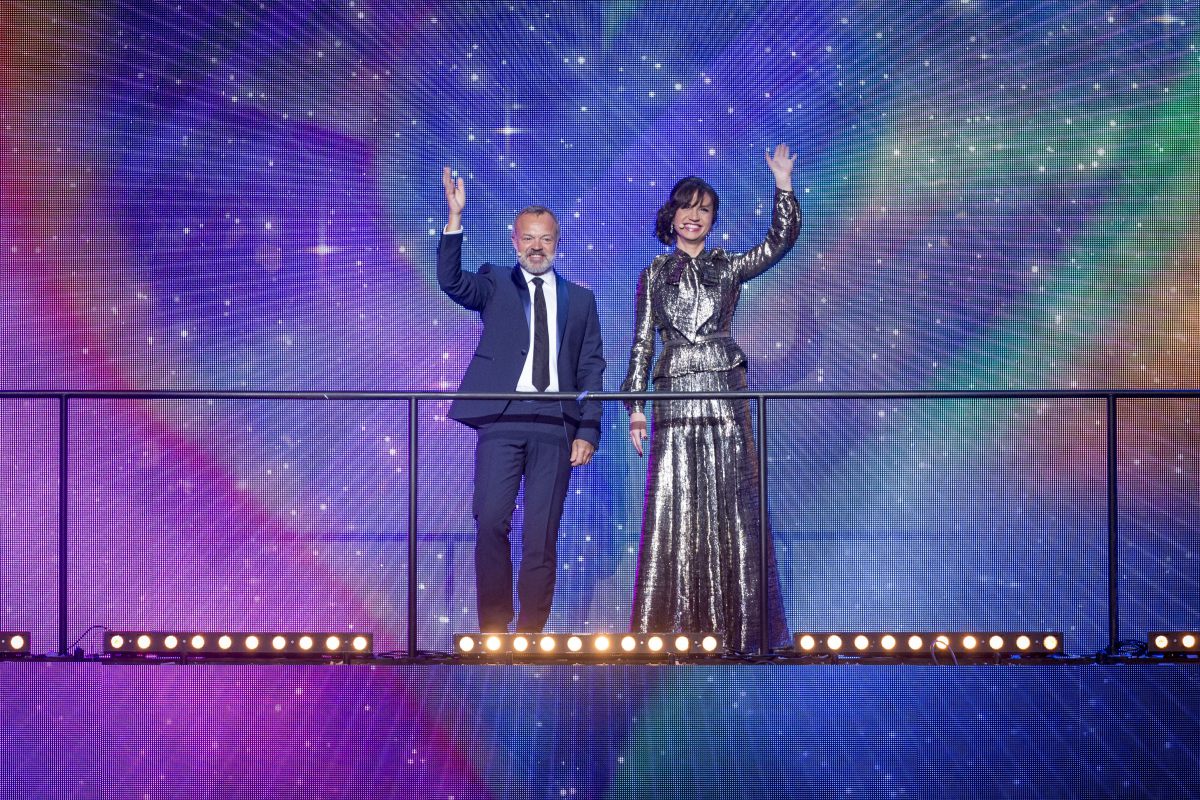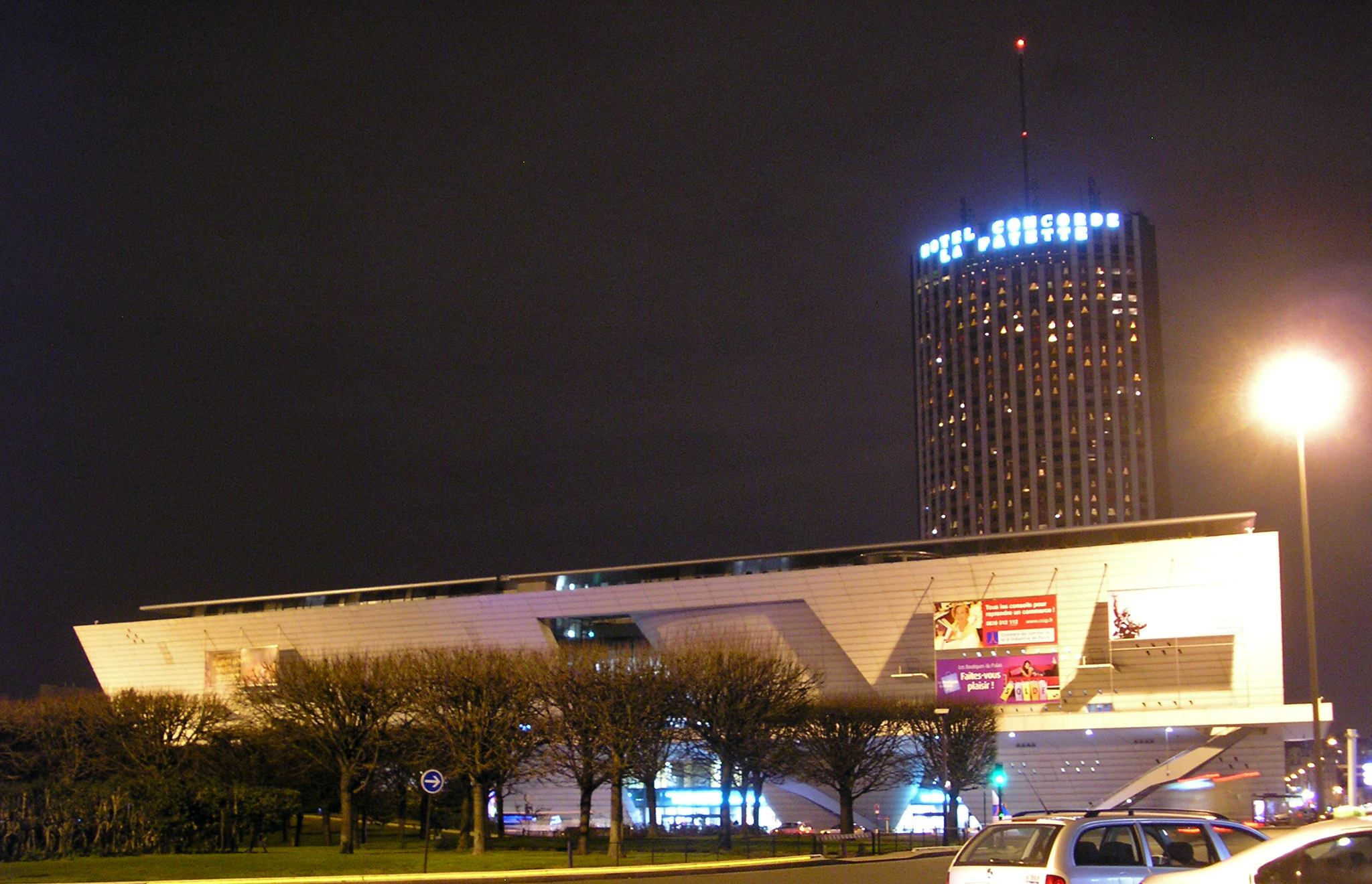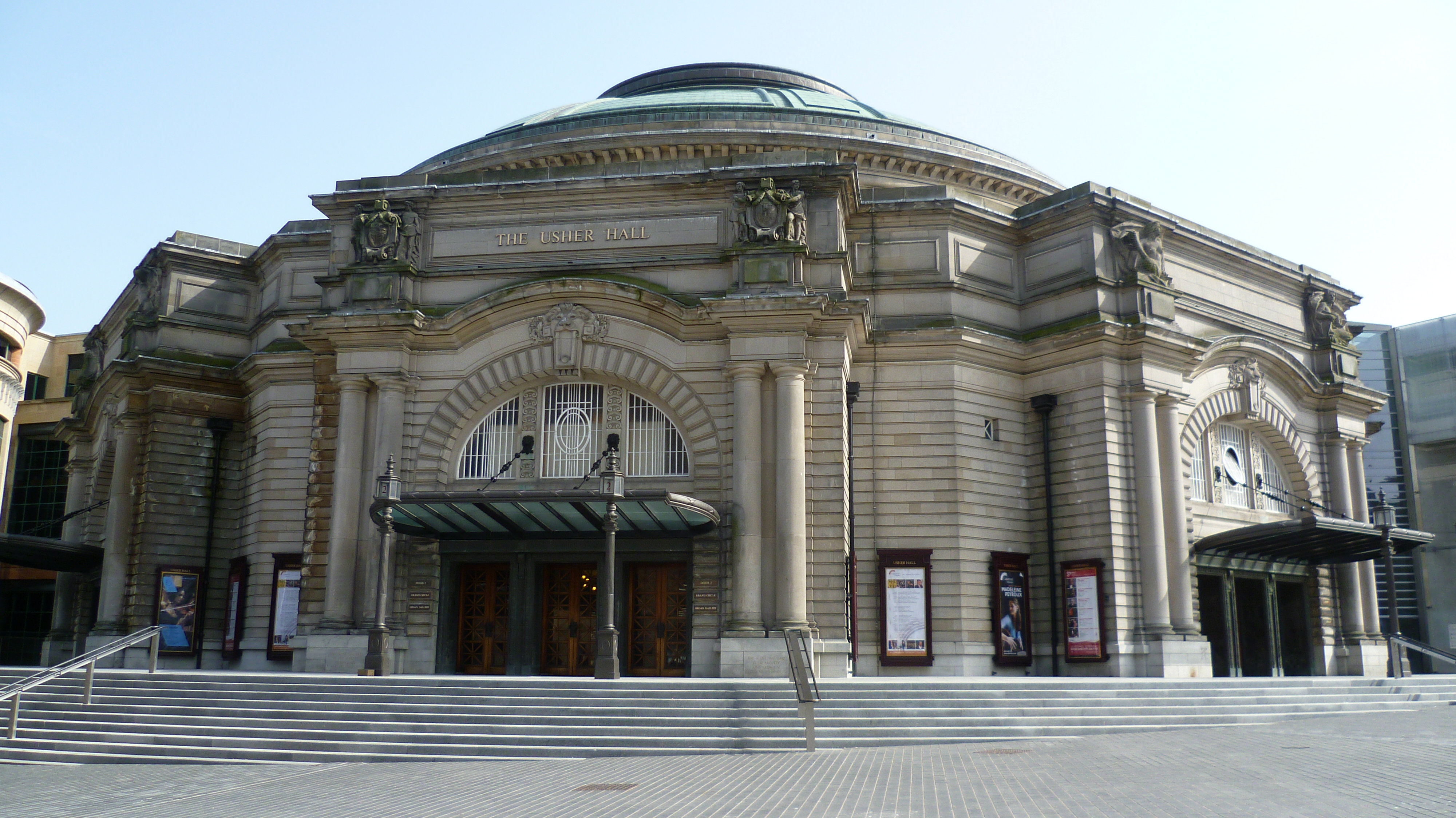|
United Kingdom In The Eurovision Song Contest 1979
The United Kingdom held a national preselection to choose the song that would go to the Eurovision Song Contest 1979. A Song for Europe 1979 was planned to take place at the Royal Albert Hall in London on 8 March. Before Eurovision A Song for Europe 1979 After a day's rehearsals at the Royal Albert Hall a strike by BBC technicians stopped the show about an hour before transmission. Audio recordings of the songs were voted on by 14 regional juries: Bristol, Bangor, Leeds, Norwich, Newcastle, Aberdeen, Birmingham, Belfast, Cardiff, Plymouth, Glasgow, Southampton and London. The jury in Manchester could not be contacted and since the winner had a more than 12 point winning margin, their scores were not included. This led to an immaterial tie for second place. The Manchester votes were later verified and added to the scores, demoting the song ''Call My Name'' down to third place. The following day, the 12 songs were broadcast on Terry Wogan's Radio 2 show and a recap of the top pl ... [...More Info...] [...Related Items...] OR: [Wikipedia] [Google] [Baidu] |
UK National Selection For The Eurovision Song Contest
''Eurovision: You Decide'' is the most recent name of a BBC television programme that was broadcast annually to select the United Kingdom's entry into the Eurovision Song Contest. The show had previously gone under several other names, including ''Festival of British Popular Songs'' (1957), ''Eurovision Song Contest British Final'' (1959–1960), ''The Great British Song Contest'' (1996–1999), ''Eurovision: Making Your Mind Up'' (2004–2007), ''Eurovision: Your Decision'' (2008), and ''Eurovision: Your Country Needs You'' (2009–2010), but was known, for most of its history, as ''A Song for Europe'' (1961–1995, 2000–2003). The selection process, originally broadcast on BBC One, has varied between selecting both the performer and song, or just the song in some years. For most years the public has been able to vote for the winner, in the past with postcard voting, where the viewers sent postcards with their vote to the BBC, but more recently televoting and online. In 200 ... [...More Info...] [...Related Items...] OR: [Wikipedia] [Google] [Baidu] |
Paul Curtis (musician)
Paul Michael Curtis (born 1950) is an English singer, songwriter, record producer from London, who holds the record for the highest number of songs to make the finals of the ''A Song for Europe'' contest, the BBC's annual competition to choose the UK's entry to the Eurovision Song Contest, competing with 22 separate songs from 1975 to 1992. Career Paul Curtis recorded under the name of Mickey Moonshine for one single "Name It You Got It" on the uk Decca label in 1974. This was a popular track played on the Northern soul scene a few years later and was re-released to capitalise on the demand at the time. His true identity on this track had been queried over the years. Some suggestions were Alvin Stardust, Paul Nicolas and the favourite-Chris Rainbow. Two phone calls followed from the Soul source Internet list members in 2008. One to Chris Rainbow on the isle of Skye confirmed it wasn't him, and one to record label owner Paul Mooney from Paul Curtis himself confirming it was him. ... [...More Info...] [...Related Items...] OR: [Wikipedia] [Google] [Baidu] |
Countries In The Eurovision Song Contest 1979
A country is a distinct part of the world, such as a state, nation, or other political entity. It may be a sovereign state or make up one part of a larger state. For example, the country of Japan is an independent, sovereign state, while the country of Wales is a component of a multi-part sovereign state, the United Kingdom. A country may be a historically sovereign area (such as Korea), a currently sovereign territory with a unified government (such as Senegal), or a non-sovereign geographic region associated with certain distinct political, ethnic, or cultural characteristics (such as the Basque Country). The definition and usage of the word "country" is flexible and has changed over time. ''The Economist'' wrote in 2010 that "any attempt to find a clear definition of a country soon runs into a thicket of exceptions and anomalies." Most sovereign states, but not all countries, are members of the United Nations. The largest country by area is Russia, while the smallest i ... [...More Info...] [...Related Items...] OR: [Wikipedia] [Google] [Baidu] |
United Kingdom In The Eurovision Song Contest
The United Kingdom has participated in the Eurovision Song Contest 64 times. It first took part in the second contest in and has entered every year since . Along with Sweden and the Netherlands, the UK is one of only three countries with Eurovision victories in four different decades. It is one of the " Big Five" countries, along with France, Germany, Italy and Spain, that are automatically prequalified for the final each year as they are the biggest financial contributors to the European Broadcasting Union (EBU). The British national broadcaster, the BBC, broadcasts the event and has, on multiple occasions, organised different national selection processes to choose the British entry. The United Kingdom has won the Eurovision Song Contest five times, and has finished as runner-up on a record sixteen occasions. The UK has hosted the contest a record eight times, four times in London (, , and ) and once each in Edinburgh (), Brighton (), Harrogate () and Birmingham (), and will h ... [...More Info...] [...Related Items...] OR: [Wikipedia] [Google] [Baidu] |
BBC Radio 1
BBC Radio 1 is a British national radio station owned and operated by the BBC. It specialises in modern popular music and current chart hits throughout the day. The station provides alternative genres at night, including electronica, dance, hip hop and indie, while its sister station 1Xtra plays black contemporary music, including hip hop and R&B. Radio 1 also runs two online streams, Radio 1 Dance, dedicated to dance music, and Radio 1 Relax, dedicated to chill-out music; both are available to listen only on BBC Sounds. Radio 1 broadcasts throughout the UK on FM between and , digital radio, digital TV and BBC Sounds. It was launched in 1967 to meet the demand for music generated by pirate radio stations, when the average age of the UK population was 27. The BBC claims that it targets the 15–29 age group, and the average age of its UK audience since 2009 is 30. BBC Radio 1 started 24-hour broadcasting on 1 May 1991. According to RAJAR, the station broadcasts to ... [...More Info...] [...Related Items...] OR: [Wikipedia] [Google] [Baidu] |
Ray Moore (broadcaster)
William Raymond Moore (2 January 1942 – 11 January 1989) was a British broadcaster, best known for hosting the early morning show on BBC Radio 2 between 1982 and 1988. Early life Born in Liverpool, he attended Waterloo Grammar School, and harboured ambitions to be a BBC announcer from an early age. On leaving school, his first job was at Liverpool docks, and he was subsequently a technician and actor with repertory companies in Oldham, Sidmouth and Swansea. Broadcasting career He started broadcasting in 1962 as a continuity announcer with Granada Television, later moving to ATV in Birmingham and eventually the BBC in Manchester and London. In his autobiography, written after his cancer diagnosis, (for which he refused radical treatment), he said that he strived for years to lose his Liverpool accent so that he could work for the BBC, but by the time he got a job there it no longer mattered.Moore, Ray, ''Tomorrow is Too Late: The heartwarming story of his fight for life'' (Pe ... [...More Info...] [...Related Items...] OR: [Wikipedia] [Google] [Baidu] |
John Dunn (radio Presenter)
John Churchill Dunn (4 March 1934 – 27 November 2004) was a British disc jockey and radio presenter known for hosting the weekday drivetime show on BBC Radio 2 between 1976 and 1998. Early life Dunn was born in Glasgow, Scotland. Career Dunn's career spanned more than 30 years and he was named Radio Personality of the Year three times. Dunn began his broadcasting career in the RAF, before he joined the BBC External Service in 1956 as a studio manager. He then became an announcer for domestic BBC Radio in the 1960s, stating "Here is the news – in English" after Emperor Rosko's first show on the first day of BBC Radio 1 in 1967. Dunn became one of the presenters of Radio 2's '' Breakfast Special'' with the start of the new networks, and the regular presenter from January 1970, but in 1972 he effectively swapped places with Terry Wogan when the latter took over the breakfast show, whilst Dunn moved to the 3 pm to 5 pm slot ''The Dunn Thing''. This did not last too long ... [...More Info...] [...Related Items...] OR: [Wikipedia] [Google] [Baidu] |
A-Ba-Ni-Bi
"A-Ba-Ni-Bi" ( he, label=Hebrew script, א-ב-ני-בי; bet-language language game for the word ''aní'', meaning "I" in Hebrew) was the winning song in the Eurovision Song Contest 1978, performed for by Izhar Cohen and Alphabeta. Description This was Israel's first Eurovision win, which meant under the rules of the contest that they would host the following year's contest, marking the first time that the Eurovision Song Contest would take place outside Europe. According to broadcaster John Kennedy O'Connor, broadcasters in many of the non-participating Arab countries in North Africa and Asia, who had been transmitting the contest, had to cut the broadcast when it was clear Israel was going to win. Jordanian television cut the broadcast and showed pictures of flowers. The song (written by Ehud Manor and composed and conducted by Nurit Hirsh, a duo who had collaborated frequently in writing Israeli Eurovision entries, including the country's debut) is an up-tempo disco number ... [...More Info...] [...Related Items...] OR: [Wikipedia] [Google] [Baidu] |
Eurovision Song Contest 1978
The Eurovision Song Contest 1978 was the 23rd edition of the annual Eurovision Song Contest. It took place in Paris, France, following the country's victory at the with the song " L'Oiseau et l'Enfant" by Marie Myriam. Organised by the European Broadcasting Union (EBU) and host broadcaster Télévision Française 1 (TF1), the contest was held at the Palais des Congrès on 22 April 1978 and was hosted by French television presenters Denise Fabre and Léon Zitrone. This was the first time that more than one presenter had hosted the contest as well as the first to have a male presenter since . In addition to hosting, the two presenters also served as commentators for France. Twenty countries participated, the highest number of competing countries in the history of the competition at the time. and both returned to the contest. Denmark had not participated since , 12 years before. The winner of the contest was with the song "A-Ba-Ni-Bi" by Izhar Cohen & the Alphabeta. Although ... [...More Info...] [...Related Items...] OR: [Wikipedia] [Google] [Baidu] |
Eurovision Song Contest 2008
The Eurovision Song Contest 2008 was the 53rd edition of the Eurovision Song Contest. It took place in Belgrade, Serbia, following the country's victory at the with the song "Molitva" by Marija Šerifović. Organised by the European Broadcasting Union (EBU) and host broadcaster Radio Television of Serbia (RTS), the contest was held at the Belgrade Arena, and (for the first time) consisted of two semi-finals on 20 and 22 May, and a final on 24 May 2008. The three live shows were presented by Serbian television presenter Jovana Janković and musician Željko Joksimović. Forty-three countries participated in the contest, the highest ever number of participants in the contest beating the record of forty-two set the year before. Azerbaijan and San Marino participated for the first time, while Austria did not participate, mainly due to questions on the semi-final organisation as well as the politicization of the contest. The winner was Russia with the song " Believe", performed ... [...More Info...] [...Related Items...] OR: [Wikipedia] [Google] [Baidu] |
Eurovision Song Contest 1972
The Eurovision Song Contest 1972 was the 17th edition of the annual Eurovision Song Contest. It took place in Edinburgh, United Kingdom and was organised by the European Broadcasting Union (EBU) and host broadcaster British Broadcasting Corporation (BBC), who agreed to stage the event after , who won in , were unable to meet the demands of hosting the event and could not find a suitable venue. The contest was held at the Usher Hall on 25 March 1972 and was hosted by Scottish ballet dancer Moira Shearer. Eighteen countries took part in the contest, the same countries as the previous year. The winner was with the song " Après toi", performed by Vicky Leandros, with lyrics by Yves Dessca, and music composed by Mario Panas (which was the writing pseudonym of Vicky's father Leo Leandros). "Après toi" became the winner with the lowest percentage of the total vote, winning with just 8.30% of the points available. Yves Dessca also wrote "Un Banc, Un Arbre, Une Rue" that had won the p ... [...More Info...] [...Related Items...] OR: [Wikipedia] [Google] [Baidu] |
Jerusalem
Jerusalem (; he, יְרוּשָׁלַיִם ; ar, القُدس ) (combining the Biblical and common usage Arabic names); grc, Ἱερουσαλήμ/Ἰεροσόλυμα, Hierousalḗm/Hierosóluma; hy, Երուսաղեմ, Erusałēm. is a city in Western Asia. Situated on a plateau in the Judaean Mountains between the Mediterranean Sea, Mediterranean and the Dead Sea, it is one of the List of oldest continuously inhabited cities, oldest cities in the world and is considered to be a holy city for the three major Abrahamic religions: Judaism, Christianity, and Islam. Both Israelis and Palestinians claim Jerusalem as their Capital city, capital, as Israel maintains its primary governmental institutions there and the State of Palestine ultimately foresees it as its seat of power. Because of this dispute, Status of Jerusalem, neither claim is widely recognized internationally. Throughout History of Jerusalem, its long history, Jerusalem has been destroyed at least twice, Sie ... [...More Info...] [...Related Items...] OR: [Wikipedia] [Google] [Baidu] |






